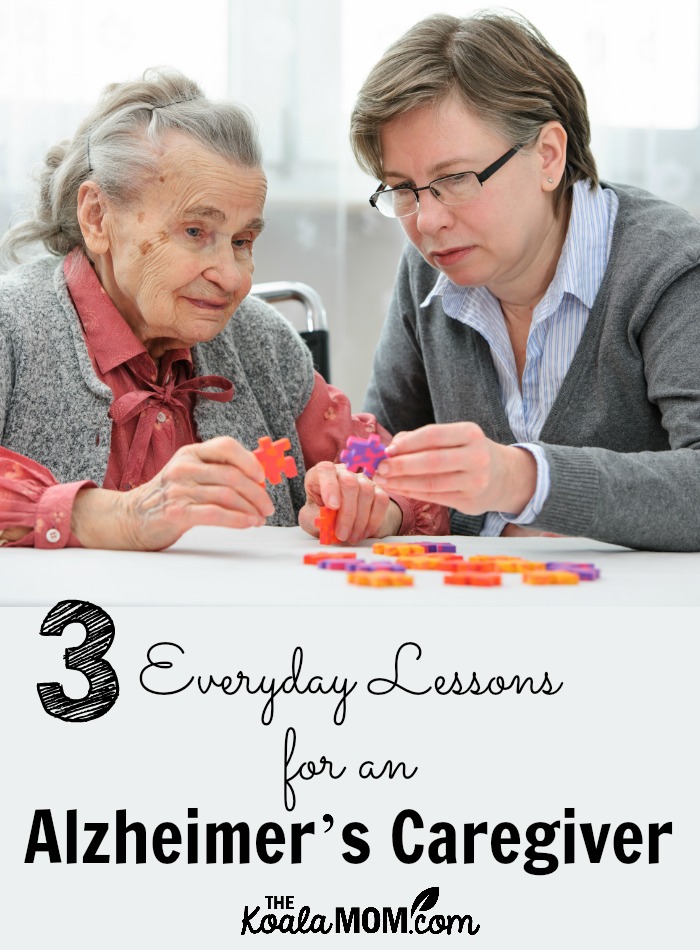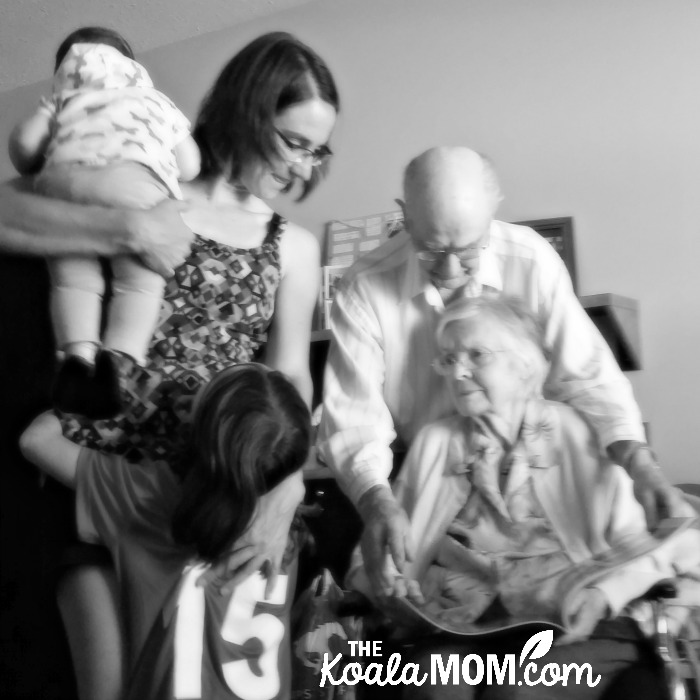Age-related mental illness is an issue close to my heart. Over the last couple years, I’ve watched my grandma’s dementia be diagnosed and rapidly progress. My husband’s grandma suffered from Alzheimer’s, a specific form of dementia. While I live a province away from my grandma and am not able to help with her care, this article by Kathleen Brown caught my attention. If you or someone you know is an Alzheimer’s caregiver, I hope these lessons encourage you.

I discovered Mom had Alzheimer’s during a September trip. September. Its flower is the forget-me-not; its gemstone, the sapphire. Sapphires were once associated with clear thinking. As I began caring for Mom, in the house where I grew up, I hoped the clear thinking part was for me.
If you’re an at-home Alzheimer’s caregiver, you know it presents unique challenges. My first weeks with Mom felt like one emergency after another; I was on adrenaline overload.
Then I began noticing the miracles: tiny ones (finding one of Mom’s shoes in the trash can), and huge ones (Mom suddenly agreeing to a long-needed bath). Feeling the Lord’s presence and help, I calmed down and began to learn. Fear not—you’ll see miracles, too.
Three Everyday Lessons for an Alzheimer’s Caregiver
#1 – You always have options.
In the beginning I thought there was only one right way to accomplish any care task. Wrong. There will always be more than one way to do what you need to do. Finding the best way, however, means we must look at all the options.
Example: Doctor to Mom: “Exercise.”
Mom to doc: “No.”
Solution: Two carts at the mega-store. While Dad shopped with one, Mom used the other like a walker, happy to stroll with me all around the store.
#2 – Be ready to laugh.
Laughing in the face of Alzheimer’s is absolutely necessary for survival. The day Mom opened her mouth and I saw her dentures were in upside down, I smiled when I wanted to cry. After I fixed them, I laughed. Her poor gums were no longer being bitten by false teeth! Humor is an invaluable companion in caregiving.

#3 – You will make it, even through the most difficult times.
When you need strength, you’ll have it. When you need words, they’ll come to you. When there’s nothing you can do to help your loved one, she will, against all odds, help herself. I can’t tell you how it happens—who can explain a miracle?—but I can tell you that resolution always comes. Expect it.
Expecting solutions widens your field of vision. You’ll find resources and strategies you won’t see if your eyes are closed in despair.
We hope effective treatments for Alzheimer’s will come—someday. Ways to cure and even prevent it. Until then, our peace will be in knowing we can help our loved ones through it. We can.
What advice would you share with a fellow Alzheimer’s caregiver?
Kathleen Brown is a writer, speaker, and firm believer in everyday miracles. The author of A Time for Miracles: Finding Your Way through the Wilderness of Alzheimer’s, she focuses her work on needs of at-home Alzheimer’s caregivers. You can reach Kathleen through her blog, or by email to [email protected].

No Responses Yet